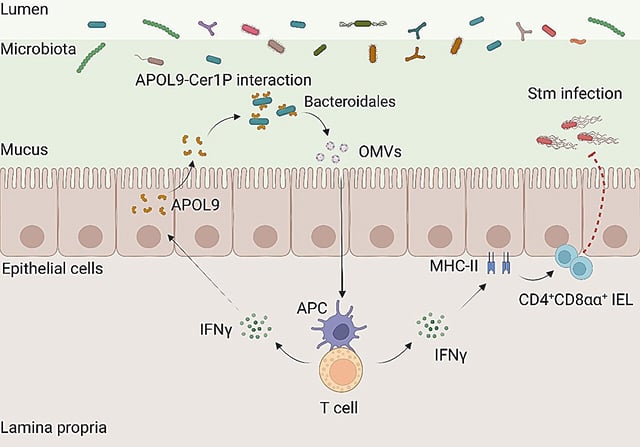Overview
- The study reveals that the protein APOL9, induced by gut microbiota, binds to ceramide-1-phosphate (Cer1P) on Bacteroidales bacteria to trigger immune-modulating effects.
- APOL9 binding prompts bacteria to release outer membrane vesicles (OMVs), which enhance interferon-gamma signaling and increase MHC-II expression on intestinal cells.
- Mice lacking APOL9 exhibit weakened immunity and greater susceptibility to Salmonella infection, but OMV treatment restores immune function and reduces infection severity.
- Researchers developed the innovative 'APOL9-seq' method to map bacterial targets of APOL9, demonstrating specificity for Bacteroidales species.
- The study highlights potential therapeutic applications, including leveraging human APOL2, which shows conserved binding to bacterial lipids, to strengthen gut immunity.
